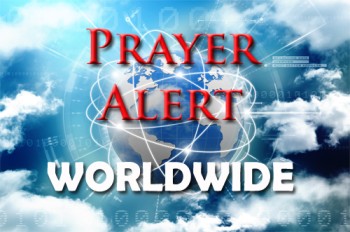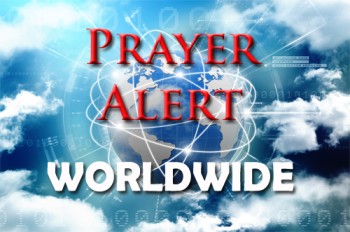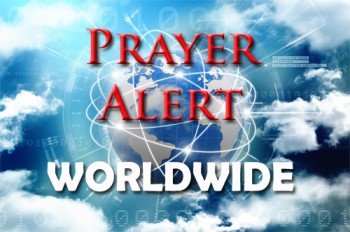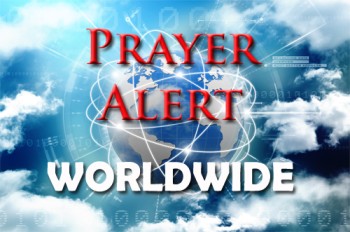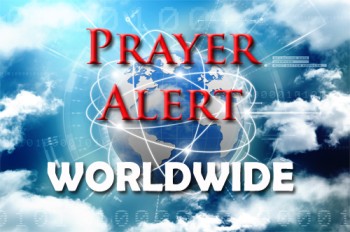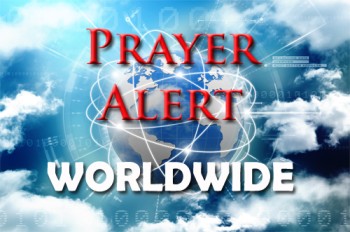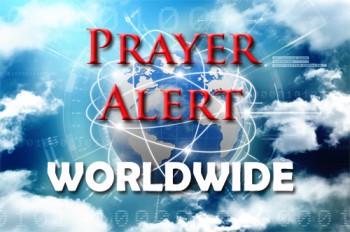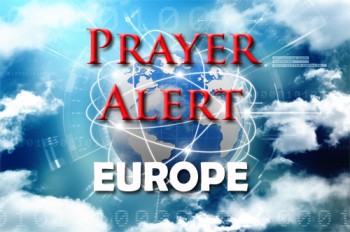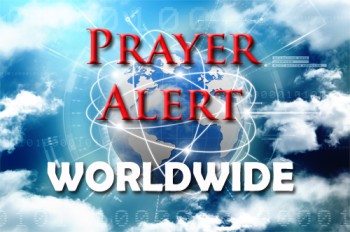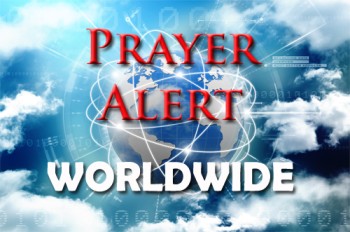Displaying items by tag: Donald Trump
Gaza: huge criticism of Trump’s proposal to resettle Palestinians
Donald Trump has proposed permanently resettling Palestinians out of Gaza, calling it a ‘demolition site’ and suggesting US involvement in rebuilding the territory. His remarks, made during a visit to Washington by Benjamin Netanyahu, seem to signal a major shift in US policy on Israel and the Palestinians. Arab nations have strongly rejected the plan, warning that it could destabilise the region and expand the conflict. Under international law, forced population transfers are prohibited. Trump’s vision, which includes an international takeover of Gaza, aligns with far-right Israeli groups advocating for indefinite war against Hamas and the expansion of Jewish settlements. They might welcome Trump’s position, but for millions of displaced Palestinians, it represents the threat of permanent exile and collective punishment. Meanwhile, sick and wounded Palestinians have left the Gaza strip as the fragile ceasefire continues: see
South Africa: Trump threatens funding cuts
Donald Trump has threatened to cut all US funding to South Africa over unproven claims that the government is seizing land from white landowners. Cyril Ramaphosa has moved swiftly to deny these claims categorically. The controversy stems from South Africa’s new Expropriation Act, which allows land redistribution in the public interest but does not permit arbitrary seizures. Legal experts argue the law is a constitutional mechanism to correct racial disparities from apartheid, not a tool for mass expropriation. Trump’s claims may have been fuelled by AfriForum, a right-wing South African lobby group which has long pushed the narrative of land grabs and a so-called ‘white genocide’, despite researchers debunking these assertions. Meanwhile, South African officials warn that retaliatory measures, including restricting mineral exports to the USA, could follow if Trump enforces funding cuts.
China / USA: exchange of tariffs on imports
China has retaliated against new US tariffs by imposing 15% duties on certain energy imports and 10% tariffs on crude oil, vehicles, and machinery. It also announced export controls on key minerals like tungsten and added two firms to its ‘unreliable entities’ list. Additionally, China launched an antitrust investigation into Google. On 2 February Donald Trump had imposed 10% tariffs on Chinese goods, part of broader trade measures also targeting Mexico and Canada. He has briefly paused tariffs on those two nations following talks. China denounced the tariffs at the World Trade Organisation, warning of economic disruption. The dispute extends beyond tariffs, touching on security and fentanyl production. While Beijing aims to avoid an escalating trade war, China’s slowing economy adds pressure. Meanwhile, Trump has indicated that he might impose tariffs on other nations.
Colombia: confrontation between Petro and Trump
When president Gustavo Petro blocked US deportation flights in protest of the treatment of migrants, Donald Trump at once threatened severe tariffs and revoked visas for Colombian officials. Petro initially resisted but ultimately relented, allowing deportation flights to resume. This misstep weakened his administration, leading to the Liberal Party’s exit from the coalition government and raising concerns over the country’s foreign policy. Petro’s presidency has faced internal and external challenges, including strained US relations over drug policy reforms and closer ties with Venezuela and Cuba. His confrontational stance, while appealing to his base, risks economic consequences. Experts argue that Colombia must develop a more strategic foreign policy beyond depending on the USA. The fallout from this crisis may shape Petro’s influence in the 2026 elections, as he seeks to position himself as a defender of national sovereignty amid political uncertainty.
China willing to accept Chinese nationals deported from USA
A spokesperson has confirmed China’s willingness to repatriate confirmed Chinese nationals from the USA, following escalating tensions over deportation cooperation. This came after Donald Trump had threatened sanctions and tariffs against countries refusing to accept deportees. Following threats of potential visa sanctions against Chinese officials if China continued its noncompliance, the USA has recently sent five charter flights to China with individuals believed to lack legal residency. Trump has declared illegal immigration a national emergency, taking measures to secure borders and limit pathways to citizenship. The number of Chinese citizens encountered crossing the US southern border without permission has surged in recent years.
USA: Trump plans to use Guantanamo Bay to detain migrants
Donald Trump announced plans to sign an executive order directing the federal government to prepare the naval base at Guantanamo Bay, Cuba, to detain up to 30,000 migrants. He claimed the base already has the capacity to house ‘the worst criminal illegal aliens‘ and that this move would double detention capacity. This coincided with signing an act which mandates detention for undocumented migrants charged with certain crimes. The bill, Trump’s first major legislative victory in his second term, had passed Congress with bipartisan support. Guantanamo Bay has historically been used for detaining terrorism suspects and temporarily processing migrants. However, an official has denied that 30,000 beds are available, and said that the base lacks infrastructure for such a large influx. Meanwhile, the White House has rescinded a total funding freeze announced on 27 January, which had caused huge confusion. For an analysis of this decision, see
USA: Trump links plane crash to diversity programmes
Donald Trump has linked a deadly mid-air collision in Washington DC to diversity hiring practices at the Federal Aviation Administration (FAA) under previous administrations. The crash, involving an American Airlines jet and a military helicopter, claimed 67 lives; there were no survivors. Trump criticised Joe Biden and Barack Obama for allegedly prioritising diversity initiatives over aviation safety, and accused the FAA of lowering hiring standards for air traffic controllers. He also claimed that under Biden, the FAA recruited individuals with ‘intellectual disabilities and psychiatric problems’. The crash has sparked debate over aviation hiring policies, with officials emphasising the need for a thorough, fact-based inquiry.
Trade: EU’s desire to negotiate with Trump
The EU has signalled its readiness to negotiate with Donald Trump, hoping to avoid a damaging trade conflict. Ursula von der Leyen highlighted growing global competition and warned against trade policies that disrupt economic bonds. Trump’s administration has begun investigating US trade deficits and unfair practices: Germany is a potential target, but chancellor Olaf Scholz has expressed cautious optimism after his first contacts with Trump's administration. Von der Leyen reaffirmed the EU’s commitment to collaboration with global partners, including India and China; she also voiced support for the Paris climate agreement, which Trump has exited. Noting that trade between the USA and the EU is worth 1.5 trillion euros, she said, ‘No other economies in the world are as integrated as we are. So our first priority will be to engage early, discuss common interests, and be ready to negotiate.’ EU officials see Trump’s policies as a wake-up call to fix their economies and become more competitive.
Donald Trump: a raft of executive orders
Donald Trump began his second term as president with a flurry of executive orders, overturning many Biden-era policies and solidifying his ‘America First’ agenda. These included reinstating the construction of the border wall with Mexico, withdrawing from the WHO (again), and reintroducing the death penalty for undocumented immigrants who commit capital crimes. He also abolished government-funded gender diversity programmes, stating that there are only men and women. Environmental policies were rolled back as he exited the Paris climate agreement and expanded fossil fuel drilling. He also pardoned over 1,600 individuals involved in the 2021 Capitol riot. Other actions included pausing foreign aid for ninety days, creating a department of government efficiency under Elon Musk, and extending the deadline for TikTok's compliance with ownership laws. Critics argue these orders fuel division, threaten democracy, and undermine progress on social and environmental issues. His swift actions underline his intent to shape policy decisively, even as legal and Congressional challenges loom.
Donald Trump: bishop’s sermon at inaugural service
In her sermon during the inaugural prayer service at Washington’s National Cathedral, Bishop Mariann Budde spoke directly to Donald Trump and J D Vance. She challenged Trump’s recent executive orders, including policies affirming biological distinctions between men and women, trying to end birthright citizenship, and intensifying immigration measures. Speaking of immigrants' contributions and the fears of LGBTQ+ children, Budde called for mercy and compassion, emphasising Christian teachings of kindness to strangers. She concluded by urging Trump to alleviate the fears of children worried about deportations and show mercy to refugees fleeing persecution. Afterwards, Trump said he ‘didn't think it was a good service’, and one Republican congressman sarcastically suggested she be deported. The bishop is known for her past criticism of Trump, such as his controversial 2020 photo holding a Bible outside a church.
